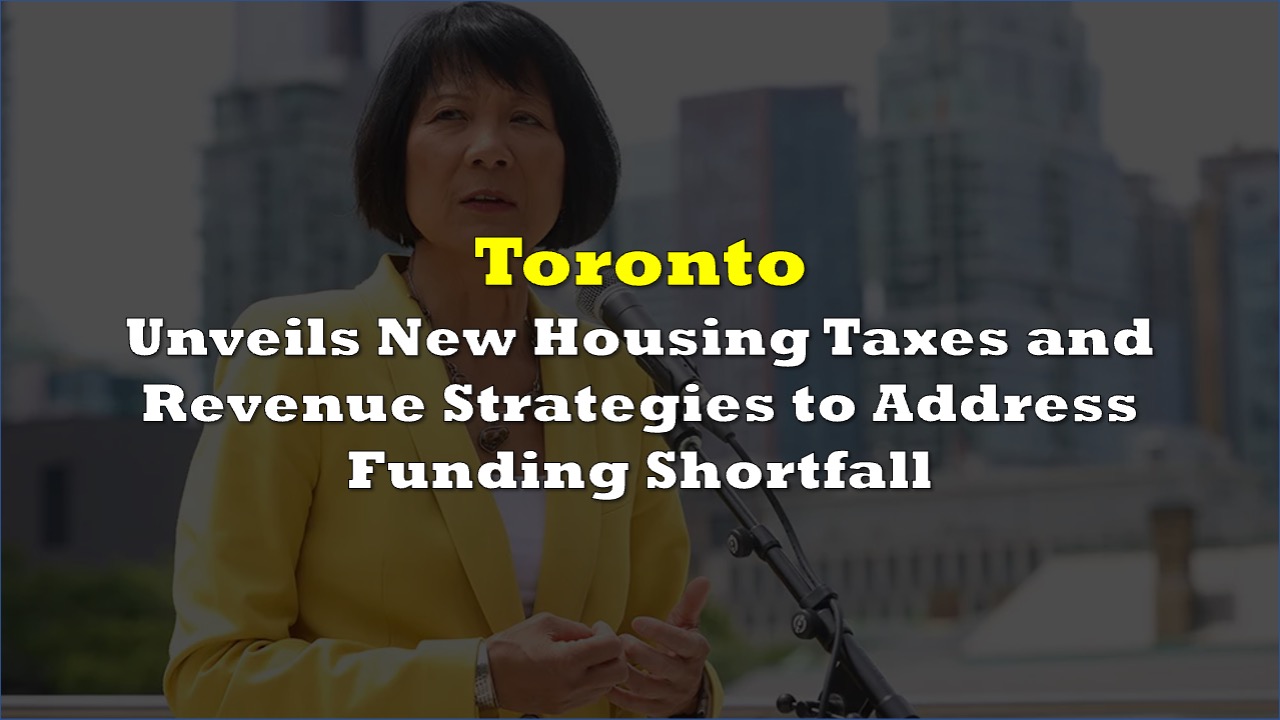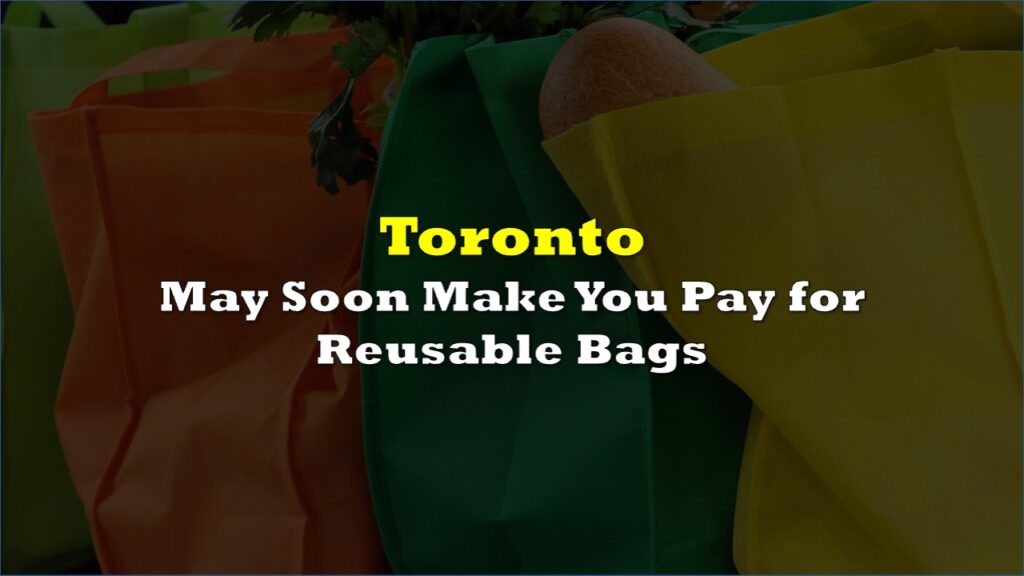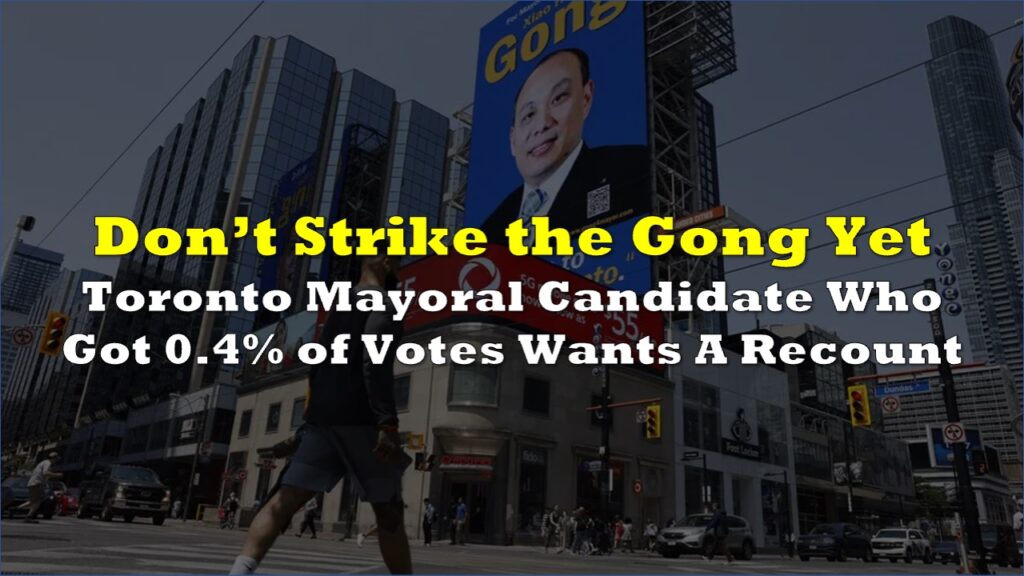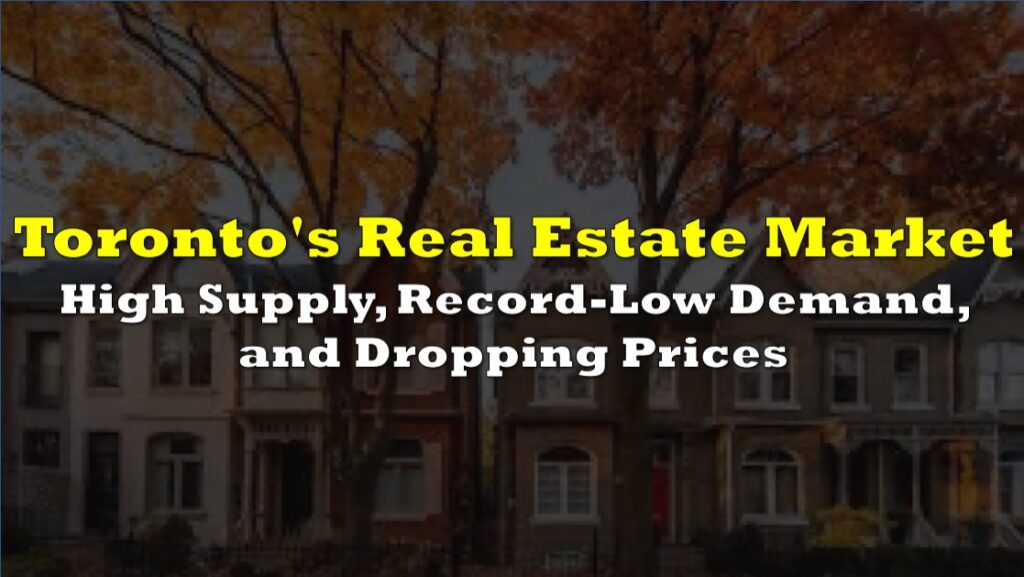The City of Toronto on Wednesday approved an updated long-term financial plan aimed at addressing its funding shortfall. The plan introduces several new housing-related revenue measures to boost the city’s finances.
The city is facing an estimated $1.5 billion shortfall for the 2024 operating budget and an estimated $29.5 billion is needed for the 10-year Capital Plan — both included in the $46.5 billion shortfall identified over the next 10 years.
One of the key changes is the approval of the graduated Municipal Land Transfer Tax (MLTT) rate for residential properties valued at $3 million and above. Beginning January 1, 2024, this new tax structure will apply varying rates based on property value. Homes valued up to $4 million will incur a 3.5% tax, while properties up to $5 million will be taxed at 4.5%. For homes up to $10 million, a 5.5% tax rate will apply, increasing to 6.5% for properties up to $20 million, and finally, homes exceeding $20 million will face a 7.5% tax.
The financial plan also includes exploring the possibility of increasing the Vacant Home Tax rate from 1% to 3%, taking inspiration from Vancouver’s similar move in 2021. Additionally, the city is considering the introduction of a foreign buyer land transfer tax, an emissions performance charge for buildings, and an additional land transfer tax for buyers with multiple properties within Toronto, with some exceptions.
To optimize its assets and reduce expenditures, the city will evaluate the removal of non-residential, non-ground floor area development charge exemptions. It will also conduct a review of surplus or underutilized real estate assets and assess the feasibility of implementing a graduated municipal property tax rate for high-value residential properties that are not the primary residence.
Below are the next steps and priorities, according to the September 6 statement.
As immediate first steps, Council directed staff to:
- Implement graduated Municipal Land Transfer Tax rates for high value residential properties valued at $3 million and above, for January 1, 2024
- Develop multi-year approach for property tax rates
- Remove on-street parking rate cap to enable a comprehensive rate review
- Report back on increasing the Vacant Home Tax rate from one to three per cent
- Request the TTC work with the City and the Toronto Arts Council to increase ridership.
In addition, Council requested staff reports for the introduction of the following new revenue and policy tools:
- A Foreign Buyer Land Transfer Tax
- A Commercial Parking Levy
- A dedicated 911 Next Generation levy
- An Emissions Performance Charge for buildings
- An additional land transfer tax on buyers of residential property where the purchaser owns more than one property within Toronto, with appropriate exemptions
Council also requested staff reports to explore reducing expenditures and forgone revenues, optimizing asset management and the feasibility of additional revenue tools:
- Restructure or dissolve the Imagination, Manufacturing, Innovation and Technology (IMIT) Financial Incentive Program
- Reduce or remove non-residential non-ground floor area development charge exemptions
- Review surplus and underutilized real estate assets to maximize greatest value and/or use
- A levy per passenger from Billy Bishop Toronto City Airport
- Graduated municipal property tax rates for high value residential properties and for properties that are not the owner’s primary residence
- A municipal lottery.
“The people of Toronto deserve a city where they can find affordable housing, rely on the TTC to get to work on time and access the programs that make life in our city better,” said newly-elected Mayor Olivia Chow in the statement.
“Toronto is stepping up to meet our significant financial challenges and deliver the services people need. Despite the multiple actions approved by Council today we still need our partners – the Government of Canada and the Province of Ontario – to step up for the people of Toronto.”
City first
Part of the “step up” is also informing the federal and provincial governments that without a new funding model or growth-related revenue tools, “the City will be forced to reduce essential service levels and cancel capital projects that benefit the region, province and country and contribute to shared priorities such as housing, transit, refugee response and climate action.”
The city is focused on new revenue streams, and has also said that it has requested the province to authorize new revenue tools including the municipal sales tax — a first in the country.
But what about property taxes?
Included in the immediate next steps is a plan for the property tax. While residential property tax was raised earlier in the year, property tax in Toronto, where properties are generally more expensive compared to other areas, is the lowest in Ontario and one of the lowest in the country. It has, interestingly, been the last of the housing-related taxes to move.
The city of Toronto is interested in raising every tax other than property taxes.
— Eric Lombardi (@EricDLombardi) September 7, 2023
Yesterday, alongside asking for the ability to increase to HST, they have also requested payroll taxes and income taxes.
All the while, property taxes are the LOWEST IN ONTARIO.
Information for this story was found via the sources and companies mentioned. The author has no securities or affiliations related to the organizations discussed. Not a recommendation to buy or sell. Always do additional research and consult a professional before purchasing a security. The author holds no licenses.









